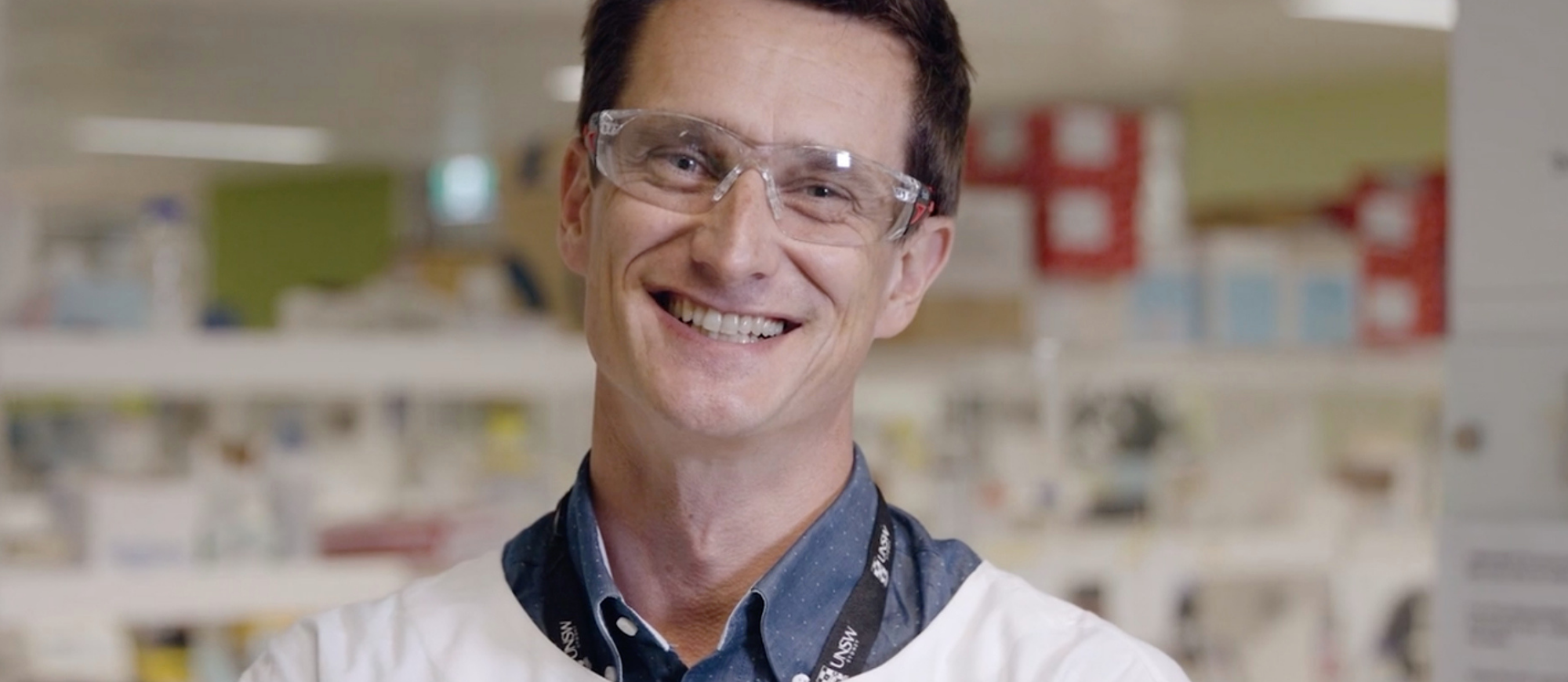Outstanding Research into T-cell Acute Lymphocytic Leukaemia

Dr Charles De Bock is the very worthy recipient of the HSANZ/ Snowdome Foundation Mid-Career Award for outstanding research into T-cell acute lymphocytic leukaemia (ALL). Charles is incredibly animated and excited when he begins to talk about finding better treatments for childhood leukaemia through research and his enthusiasm is infectious.
The award-winning research conducted by Charles has identified the combination of the genetic mutation NRAS with another mutation, the fusion of TCF7/SPI1 genes leads to T-cell ALL.
Charles did further research into the mutation combination to uncover that these cells relied on a co-factor called Beta-catenin to drive the growth of the leukaemia cells. When the co-factor Beta-catenin is bound to the TCF7/SPI1 fusion, it is switched ‘on’ and stops T-cells from differentiating so they remain in an immature state and do not die. The result is leukaemia, a build-up of defective T-cells that eventually crowd out the bone marrow leaving no room for other blood cells.
This important discovery provides researchers with a tangible target for new treatments. If a treatment can stop the co-factor Beta-catenin from binding, then we can potentially stop the growth of T-cell ALL. The findings from this research will now help Charles explore how the SPI1 gene is ‘turned on’ in other types of leukaemia to uncover potential treatment targets.
This work is part of Charley’s larger research program to understand the genetics that drive a child’s leukaemia. The ultimate goal is to develop safer and more effective treatments for children where we tailor drugs specifically for that child and avoid the toxic chemotherapies that have been in use for over 40 years.
